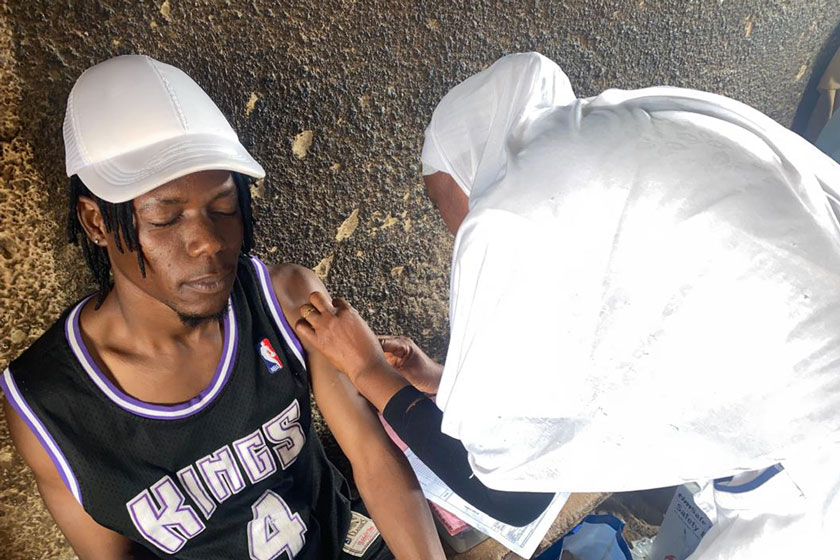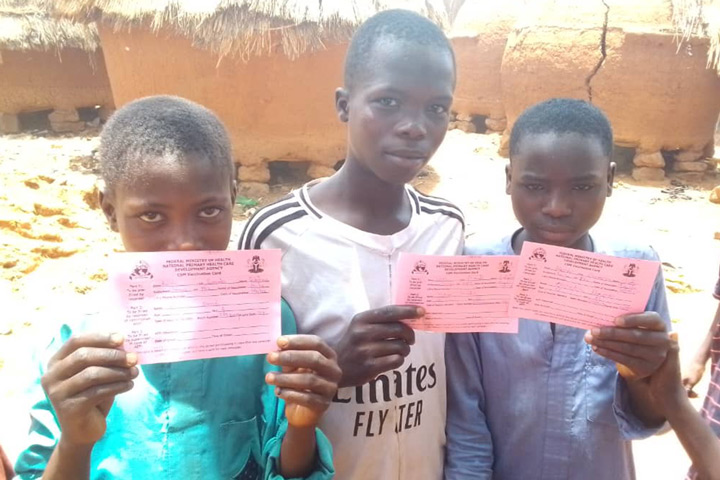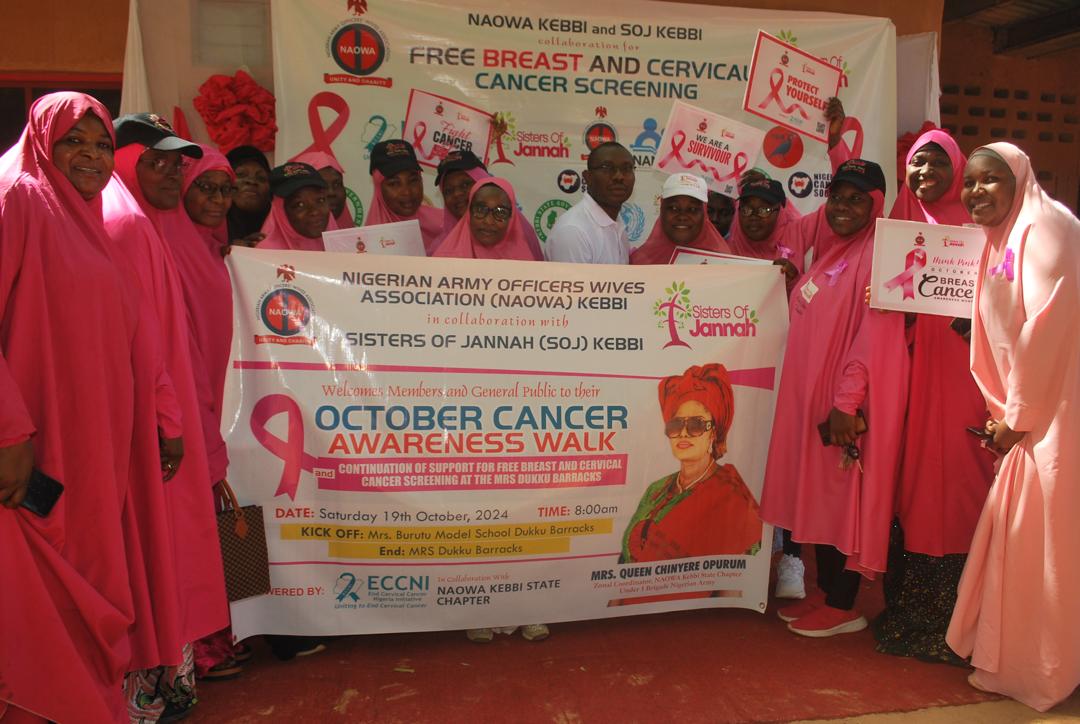Flood-displaced Nigerians rely on humanitarian intervention to stay healthy as outbreaks threaten
Nigeria's worst flooding in over a decade has left communities in limbo, with residents homeless and at risk of disease. But humanitarian groups are rising to the occasion, distributing life-saving aid from food to mosquito nets, and raising spirits in the process.
- 24 November 2022
- 5 min read
- by Eric Dumo
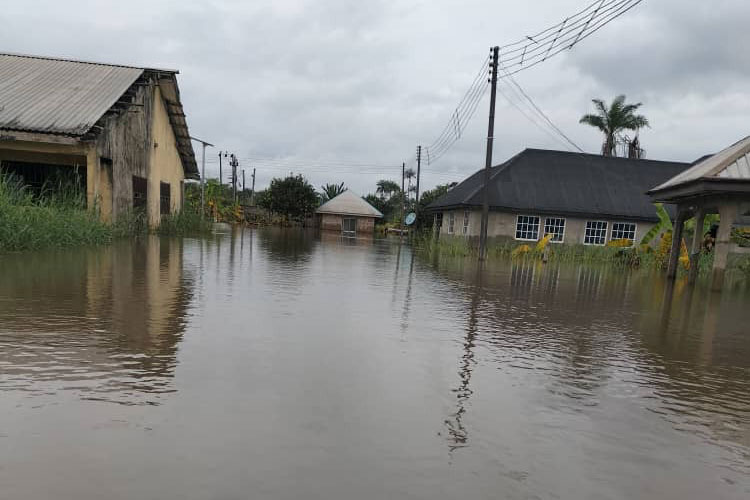
Residents of Ikarama community, in the Yenagoa Local Government Area (LGA) of Bayelsa State in Nigeria's oil-rich South-South region, will not forget October 2022 in a hurry. That month, they lost their livelihoods and the roofs over their heads.
"We had to take refuge on a bridge built by Shell Petroleum in the community which is the highest point in the area. Over 300 of us stayed there for almost one month"
Heavy rains pouring relentlessly for weeks wreaked havoc on the town and several other communities in more than 30 states across Nigeria, leaving behind a trail of destruction, displacement and death.
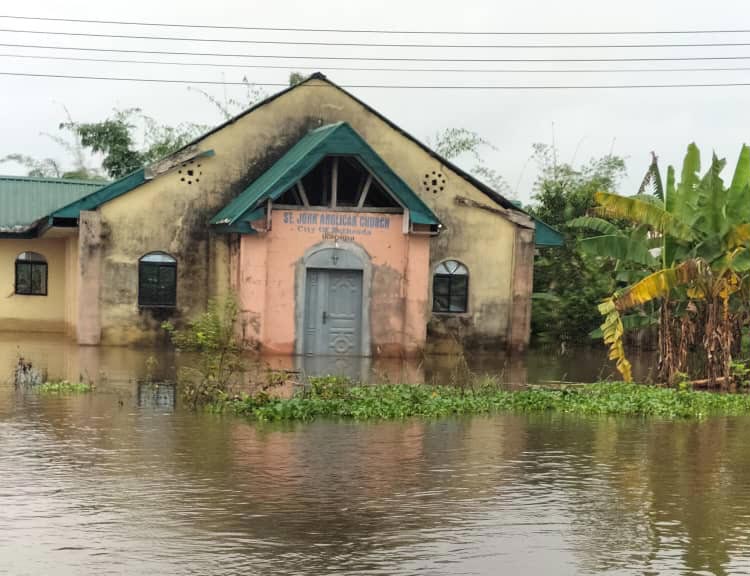
By month's end, more than 600 deaths had been recorded nationwide, with more than three million affected and one million displaced by the floods. Disease epidemics threatened – in north-eastern Borno, Adamawa and Yobe states, the rains had already ushered in an outbreak of cholera. Respiratory infections, diarrhoea and skin disease were being reported at greater rates across the country. Nigeria, home to more than 30% of the world's malaria deaths in a normal year, wre as now confronted with the kind of wet conditions in which the mosquitoes that spread the deadly disease thrive.
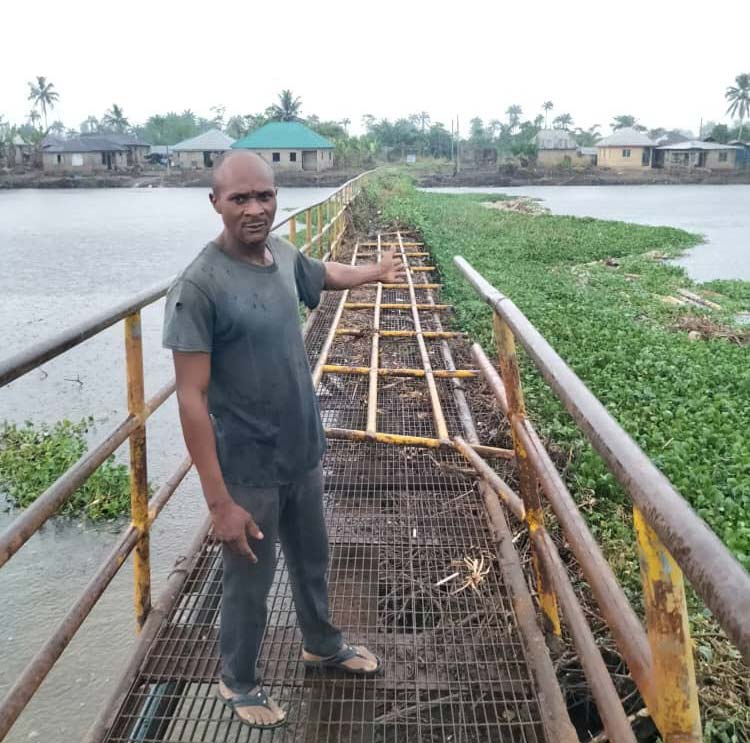
Credit: Eric Dumo
Washington Odoyibo, a resident of Ikarama who is still taking stock of his losses, says he and dozens of others in the community could have been among the dead, were it not for the intervention of some officials of the National Emergency Management Agency (NEMA), who furnished them with food and medical items.
"The flood took over our entire community, leaving us stranded and battling to stay alive. We had to take refuge on a bridge built by Shell Petroleum in the community which is the highest point in the area. Over 300 of us stayed there for almost one month," he says.
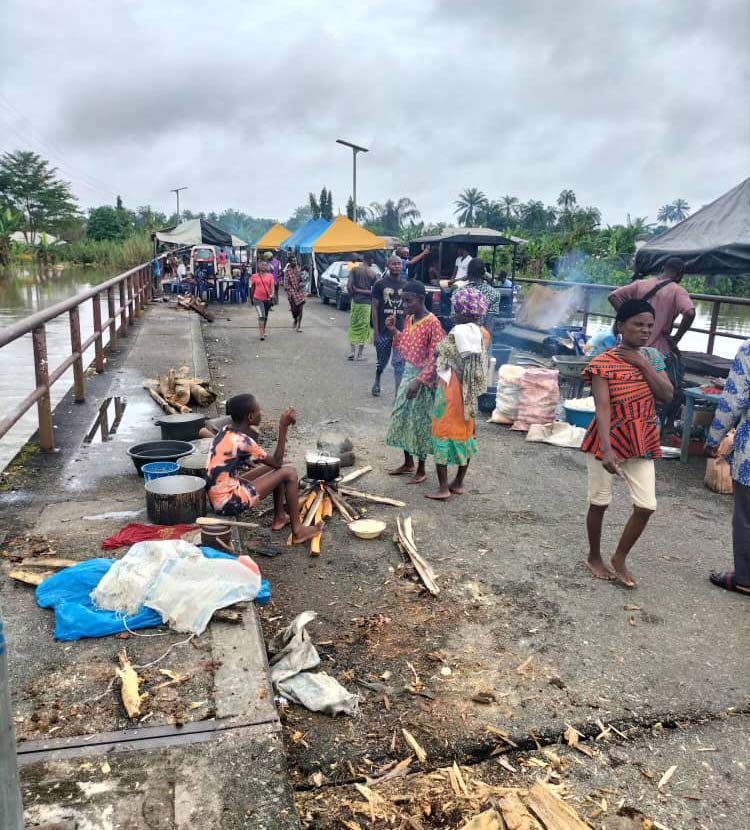
Credit: Eric Dumo
"It was the intervention of NEMA that made the most difference for us. They brought food items and medical supplies that sustained us during the peak of the crisis," Odoyibo adds as he gazes over what is left of his house and belongings.
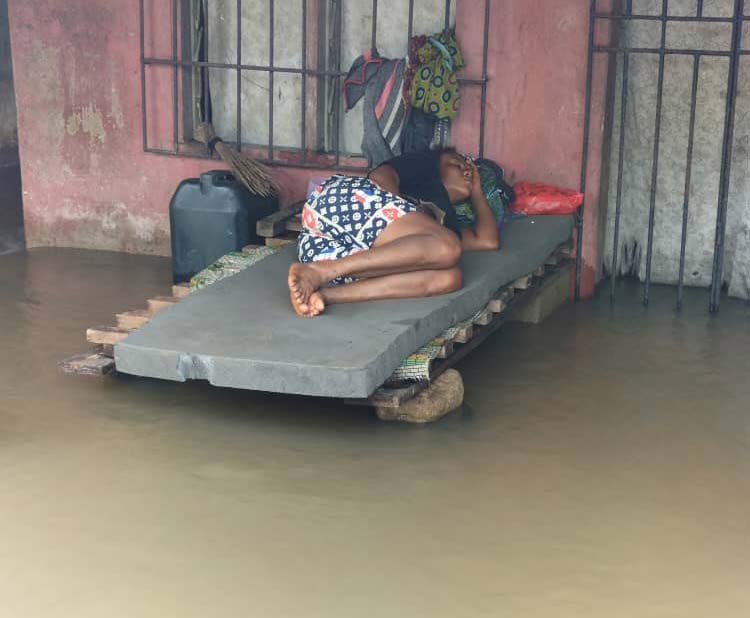
Credit: Eric Dumo
Like in Ikarama, NEMA's intervention saved lives in Otegwe and Ibelebiri communities in the Ogbia LGA, inspiring hope of survival in other parts of Bayelsa. NEMA distributed food and medical supplies, including treated mosquito nets, in a bid to curb the spread of malaria among the displaced, and worked closely with the Nigerian Navy and Red Cross, and groups of volunteers, to carry out evacuations.
Director General of NEMA, Mustapha Habib Ahmed, says that they will continue to collaborate with others to provide support and basic relief assistance to those who need them the most.
"They distributed free drugs, treated mosquito nets and blankets to protect us from the cold. This is more valuable to us than money because those items saved our lives during the earlier period of the disaster"
Also rising to the occasion in Bayelsa has been the Ijaw Youth Council. The socio-political group has mobilised in the crisis zone to provide support of all kinds to survivors. Their intervention has proved invaluable.
"IYC members not only supplied us food items, but they also distributed free drugs, treated mosquito nets and blankets to protect us from the cold. This is more valuable to us than money because those items saved our lives during the earlier period of the disaster," Markson Iworima, a fisherman with five children in Okolobaa community under Kolokuma/Opokuma LGA of the state, says.
Have you read?
National Publicity Secretary of IYC, Ebilade Ekerefe, says, "There is no amount of effort that the IYC will not put in to cushion the effects of the ravaging floods that will be enough to cater for those who have lost their lives and those whose property was destroyed. The support we have rendered so far is our little contribution to show that we care about our people."
He adds, "There is still a lot of work to do. There may be outbreaks of waterborne diseases in the weeks ahead and that is why we are already raising awareness in different communities and partnering with stakeholders to protect the health of affected people especially children."
While commending humanitarian groups and local communities for responding to the disaster with food and medical supplies, Nigeria's Minister of Humanitarian Affairs, Disaster Management and Social Development, Sadiya Umar Farouq, shared that distribution of relief items has so far reached 21 of the states affected by the floods.
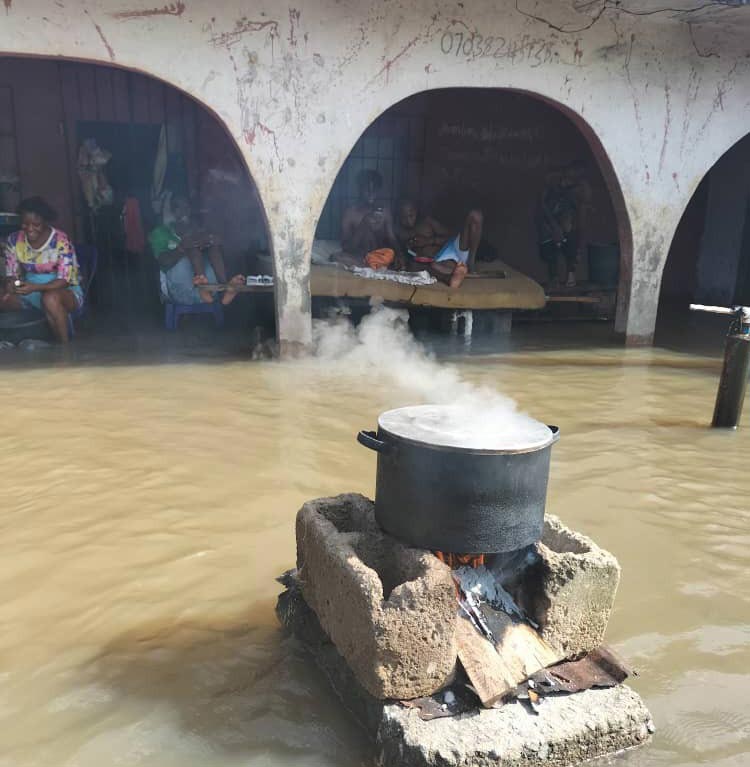
Credit: Eric Dumo
The Minister added that efforts were ongoing to reach victims in communities still submerged and inaccessible as a result of flooding.
"I commend local communities for their resilience. We received a report that local communities worked together to provide the first response to their families and neighbours. While specialised teams are now on the ground, we are working with the Military Disaster Response Units and other stakeholders with specialised skills and equipment to ensure that we use other means to reach hard-to-reach areas and people at risk," the Minister said.

